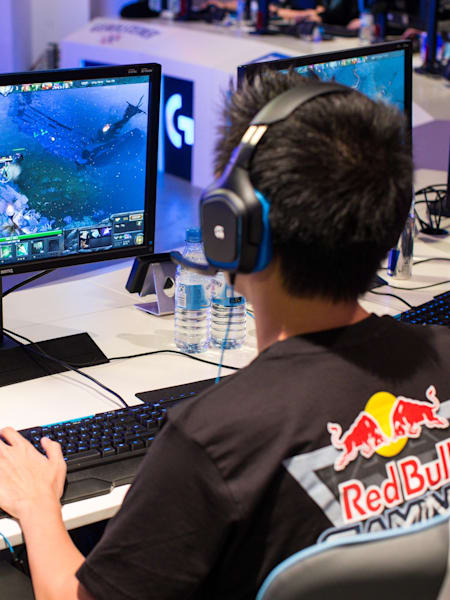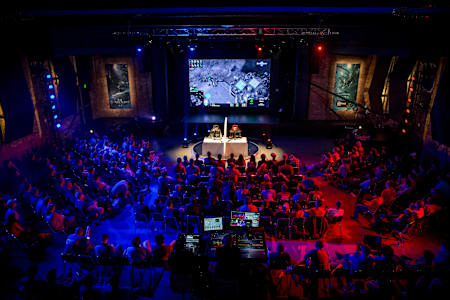Gaming
A 'pro gamer' can be defined as a professional gamer, someone who earns their income solely from playing games competitively. You’ll regularly read interviews or watch videos with international esports supersports who compete full time, earn money from endorsements and salaries from large gaming organisations around the world. However, the life of a pro gamer looks VERY different for players operating out of smaller developing regions like South Africa.
We spoke to one of South Africa’s most successful 'Pro Gamers,' Aran “Sonic” Groesbeek, about how to become a pro gamer in South Africa. Sonic is a professional CSGO player who made a huge impact in South Africa, winning nearly every major title on offer. He formed part of the exported roster from Bravado Gaming which relocated to the USA to attempt to crack the “big” scene. He’d eventually be signed by globally recognised organisation Cloud9 before choosing to retire from competitive play early in 2022. As an actual professional gamer who relied solely on his competitive performance for his income for a long time, Sonic is more than qualified to offer some valuable insight.
01
SALARY EXPECTATIONS
This isn’t an easy question to answer because there is no blanket global amount for all Pro Gamers and performance plays a big role in if and what you get paid, as Sonic explains:
“First, let’s focus on international salaries if you are signed to an established professional esports organisation. This would mean you’ve signed a contract which is longer than a year in length, which is typical. More typical contract lengths nowadays with professional esports organisations are about three years. This gives players more job security in terms of their contract lengths. However, it doesn’t shield you from losing a job by being benched, being kicked or getting bought out by the team. There are a lot of clauses covered in the contracts that impact the money you’ll make at the end of the day. However, keeping it simple, a Pro Gamer’s salary would typically range from upwards of $5 000 to about $50 000. In lower tier international competition, so for example say you’re a Tier 2 CSGO player in North America, you might get paid around $5 000, which would be considered a starting salary. I’d say the highest paid esports salary for a player in North America, currently, is about $25 000 pre-tax. In Europe, I’d say if you’re competing in Tier 3 you’re probably getting about 4000 or 5000 Euros.
In South Africa? You wouldn’t be coming close to these amounts at all. I have not heard of Pro Gamer salaries in South Africa going above R10 000 a month, or even probably about R5000 a month. So I think we still have a long way to go.
So, how much do 'pro gamers' earn in South Africa?
Professional Gamers also make an income from their prize winnings. Many esports competitions offer money depending on where you finish in the tournament. There are various spreadsheets and databases floating around on the internet that are titled “Top 100 Highest Earnings” for various competitive titles. There is even a “Top 100 Highest Earnings for South Africa” list with numbers indicating six figure earnings for various players, including Sonic. However, as he points out, these lists are somewhat misleading:
“The winnings listed on these spreadsheets and ranking lists are purely tournament based winnings. These winnings are also prize money accumulated over a long period of time - anything from four to five years. Not all tournaments are included in these lists and they do not include salaries I’ve earned throughout my esports career. While the numbers sometimes indicated are somewhat correct, these lists do not take into account that much of those earnings were won at international tournaments and not South African tournaments.”
'QUALIFICATIONS' AND SKILLS NEEDED
Being a competitive esports player is absolutely no different to being an F1 racing driver or professional rugby player. It ultimately comes down to skill level versus any tertiary studies. Pro Gamers are no different to your favourite sports stars, as Sonic explains:
“You do not need any qualifications to be a Pro Gamer in South Africa or anywhere else in the world. I’d argue that the vast majority, probably 90% of all Pro Gamers in the world, do not have a degree or tertiary education that made them a “Pro Gamer”. All they have is their chosen esport and the hard work they put in. What you need is experience and time in the game. Pro Gamers are athletes, at the end of the day. Practice, hard work, unrivalled skill, experience and a little bit of luck are what you need. A degree in Computer Science is not going to win you a CSGO Major.”
02
TIME INVESTMENT
There is absolutely no way to put a timeline on how long it might take to be a Pro Gamer. Anyone who does has probably never competed at the highest level in esports. The answer to this question is a tough one, says Sonic:
“How long does it take to become a Pro Gamer in South Africa? That is purely up to you and the avenues you take. There is also a little bit of luck involved. If you want to be a Pro Gamer you need to be good enough to be in the right place at the right time. If we look at South Africa specifically, I’d also say you’d probably have to be lucky enough, because we do not have the infrastructure built around professional esports. This includes things like consistent invites to global professional tournaments. We don’t have the facilities which are offered overseas by the American and European organisations or the support staff they have for competitive players.”
03
WHAT IT TAKES TO MAKE IT AS A PRO IN SA
To answer this question, it only makes sense to ask a Pro Gamer… and one who has achieved more than most on the international stage, not only as a global CSGO player but as a South African esports player. Sonic is candid in his answer:
“If you want to be a Pro Gamer in South Africa, you have to be a level higher than everyone else in the scene. When the opportunity comes where you can compete overseas, you need to take it. You need to show you’re good enough and hope you catch the eye of a very prominent international organisation and get picked up by them. That’s your shot.
It is EXTREMELY difficult to become a Pro Gamer in South Africa. I did it, but I did it through a lot of help from others and a lot of sacrifice from those around me. I was lucky because I got the right opportunity at the right time with Bravado Gaming, who gave my team at the time the opportunity to move overseas.
It was a HUGE financial commitment, and one that doesn’t come around that often. It has come again for the South African line up that form ATK, but they still need some time to prove themselves and we’re seeing their struggles now, the same way we say the struggles my team and I had. It shows exactly how difficult it really is and was. It showed how much work we had to put in to get to a level where we could compete against the professional teams and establish ourselves in that international scene.
So, becoming a Pro Gamer in South Africa is by no means an easy task, but it is, by all means, possible. Learn more about your particular career strengths by taking the Red Bull Wingfinder quiz.







